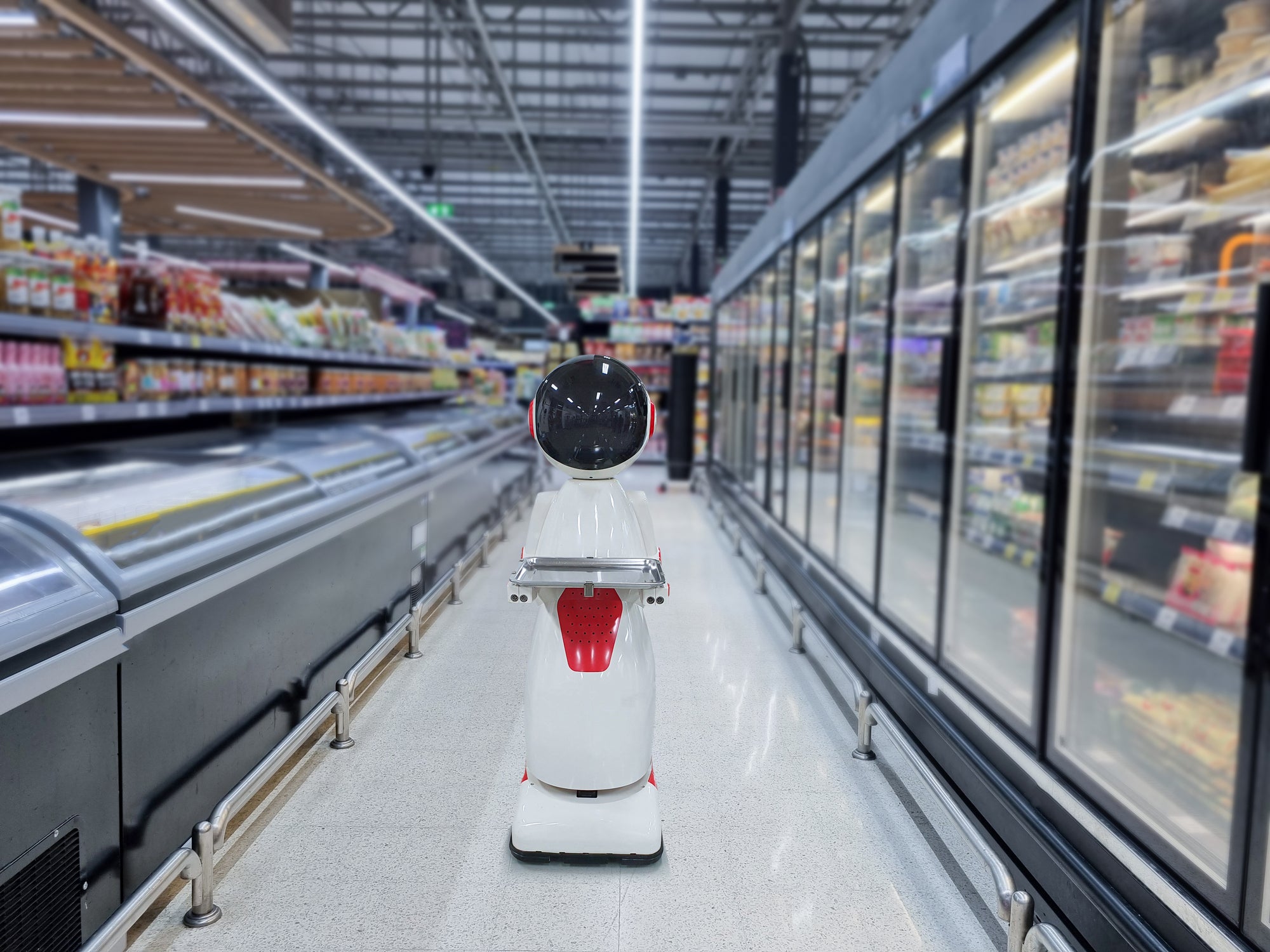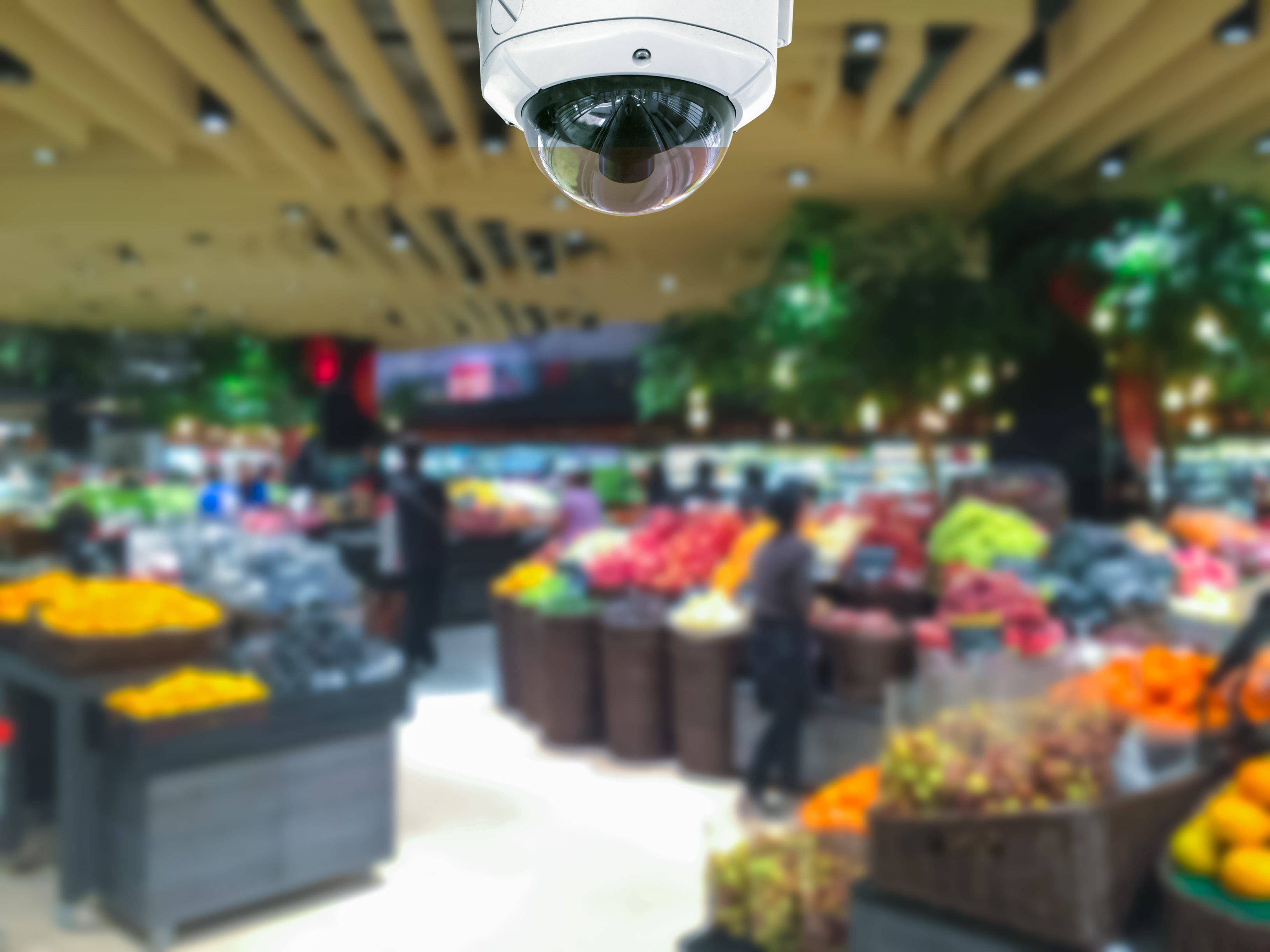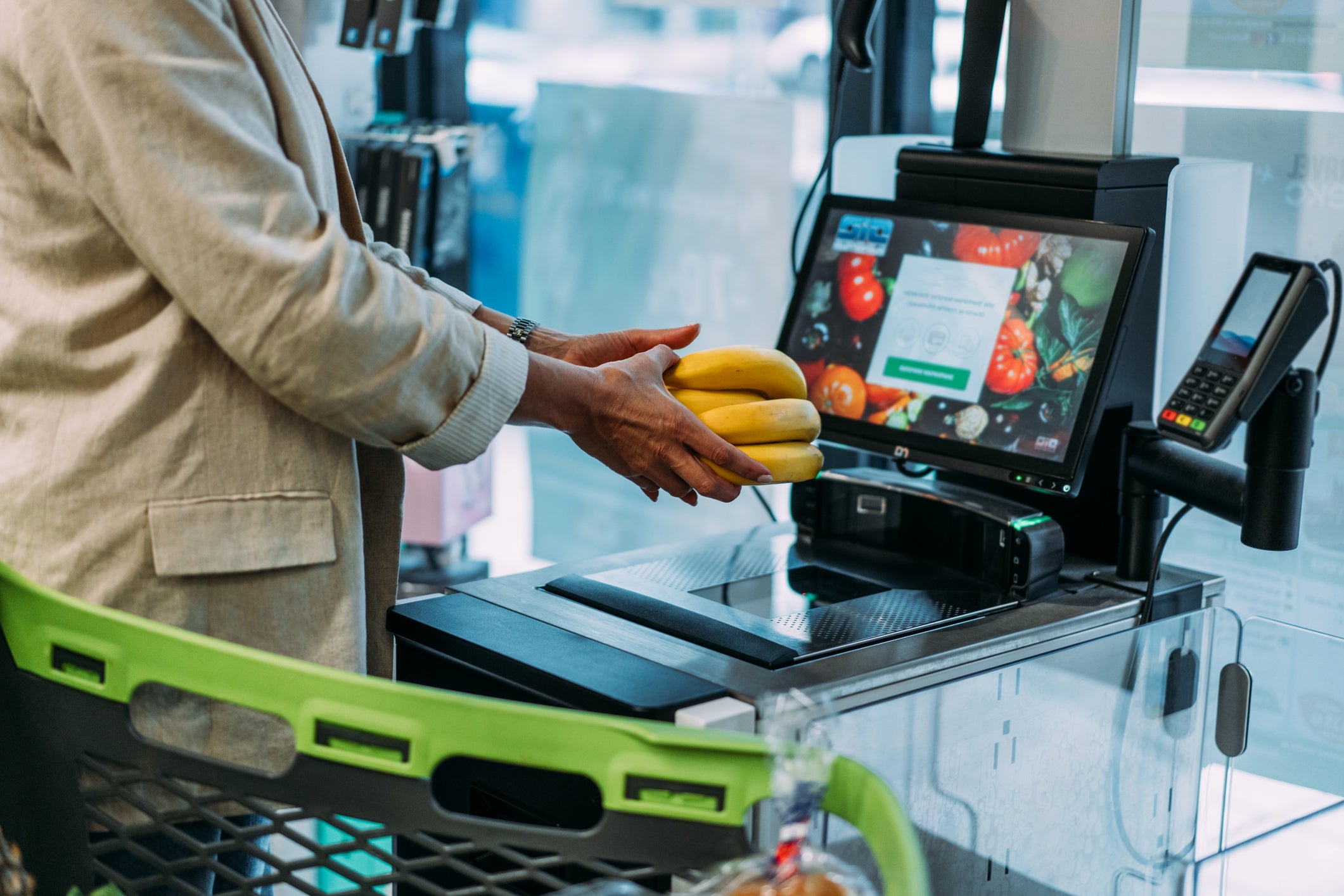Tesco’s ‘VAR-style’ AI is watching your weekly shop
Facial recognition at the checkout, shelves that track your movement and AI-powered football-style instant replays at the till: welcome to the supermarket of the future. It’s smarter, faster and more efficient – but is it still yours? Hannah Twiggs investigates the future of the weekly shop


There was a time when the most complex decision you faced at the supermarket was which checkout queue would be quicker. But now, as you glide your basket past digital price tags, scan your own groceries under the watchful eye of a ceiling-mounted camera and tap your card at a till with no human in sight, it’s clear the humble weekly shop has entered a new era. One powered by artificial intelligence.
Across Britain, supermarkets are rolling out AI and automationtechnology at a pace that would have seemed outlandish even a few years ago. Surveillance systems designed to catch footballers offside are now deployed to stop you walking out with a tin of beans you forgot to scan. Cameras, sensors, dynamic pricing software, shelf-monitoring robots – all of it being quietly slotted into the everyday rhythms of food shopping.
Some of this will make your life easier. Some of it already does. But much of it asks for something in return: your data, your privacy, your patience, your trust. And not everything you’re being asked to give is visible.
This is not science fiction. It’s not the future. It’s your local Tesco.
The supermarket giant is now trialling “VAR-style” technology at self-checkouts – a reference to the video assistant referee system used in football – where a bird’s-eye-view, AI-powered camera is mounted above each till, watching you as you scan and pack your items. If the system detects that something hasn’t been scanned correctly, it immediately plays back a short video on the screen showing what happened and prompting you to rescan.
The rationale is clear: shoplifting, or shrinkage as the industry prefers to call it, costs UK retailers billions annually. Police recorded 516,971 shoplifting offences last year, up from 429,873 in 2023 – a dramatic rise that underscores the urgency for retailers. Yet only around one in five of those cases resulted in a charge, and more than half ended without a suspect being identified. With more shoppers using self-checkout than ever, theft (both accidental and intentional) is rising.
From a business perspective, AI surveillance offers a fix that doesn’t require more staff. It’s cheaper than hiring floorwalkers, more scalable and less confrontational. Some retailers, like Home Bargains, are using AI to flag suspicious till behaviour. Others, like Southern Co-op, have trialled facial recognition to identify known offenders.
But not everyone sees this as progress. Campaigners warn that high-tech surveillance in supermarkets may do more harm than good. “Everyone wants shoplifting to be dealt with,” says Big Brother Watch, a civil liberties and privacy advocacy organisation, “but turning supermarkets into high-tech surveillance zones is not a proportionate or sustainable solution.”
For shoppers, the experience is different. Even when you’re honest, there’s something unsettling about being watched, flagged and corrected by a machine. Mistakes become accusations. Customer service becomes behavioural correction. There is, increasingly, a sense that supermarkets don’t trust the people who shop in them.
According to privacy campaigners, these systems risk alienating the very customers they’re meant to serve. “These AI-powered tools are often little more than a gimmick that will frustrate genuine shoppers while failing to address the issue,” Big Brother Watch says.

Meanwhile, over in the aisles, price tags are changing too. Co-op and Aldi have introduced electronic shelf labels in hundreds of stores, replacing traditional stickers with digital displays. This allows prices to change instantly, without staff having to swap out tags.
It sounds innocuous enough – even useful. Flash sales can be updated in real-time. Errors corrected centrally. Less paper waste. But these screens could pave the way for something more controversial: dynamic pricing.
This means it is possible prices could change based on time of day, stock levels, demand, or even individual data. A bag of pasta might cost one price at 9am and another at 6pm. Discounts might only appear if you scan your loyalty card. In theory, it creates efficiencies and prevents waste. In practice, it could introduce a lack of transparency that rarely favours the customer, though there’s no suggestion that Aldi or Co-op are adopting dynamic pricing at present.
And if prices start to fluctuate based on who you are – postcode, spending history, online behaviour – that edges us into murkier territory. The kind where your own data might be used to make you pay more.
Biometric surveillance in shops normalises intrusive, airport-style identity checks for an activity as ordinary as buying a pint of milk. It is hugely disproportionate for retailers to scan every shopper’s face, and is putting customers’ privacy and data rights at serious risk
Much of AI’s retail revolution is happening behind the scenes. Ocado, long a pioneer of automation, is deploying robotic arms to pack shopping bags. AI systems decide what to send where, how much stock to order, when to restock shelves. In Morrisons, shelf-monitoring software from Focal Systems scans stock hourly and flags gaps to staff. Some stores are trialling autonomous robots that roll through aisles checking inventory.
The business case is obvious: fewer errors, better availability, less food waste, leaner staffing. For the shopper, it can mean fewer out-of-stock items and potentially lower prices. AI can also spot patterns in footfall to help plan staffing levels and optimise layouts.
But the human cost is less often discussed. Many of these efficiencies come from replacing people with machines. Ocado has announced job cuts. Self-checkouts mean fewer cashiers. Stock management software means fewer in-store workers needed to monitor shelves. Staff aren’t being “freed up” – they’re being phased out.
Some tech is more obviously helpful. “Smart” salad bar chain Picadeli uses AI to predict demand and reduce food waste. Too Good To Go uses algorithms to surface expiring stock and offer it at discounts. These are real-world examples of AI benefiting consumers, the environment and business all at once.
Other retailers are experimenting with personalised tools, like M&S’s wine finder or AI-recommended recipes. You scan a bottle or item, and the system suggests what to pair it with or what to cook.
What you buy, when you buy it, how long you linger in a particular aisle – all of that can be tracked. In some cases, it already is. That information can then be sold or used to upsell products more effectively. You become not just a customer, but a data point. A profile. A target.
Supermarkets once competed on service. Now, they compete on seamlessness. Frictionless checkouts, algorithm-driven layouts, cashier-less stores like Amazon Fresh’s Just Walk Out model (now partially paused in the UK).

As this tech embeds itself, the question isn’t whether it will change the shopping experience. It already has. The real question is: what are you willing to give up for it?
Do you want faster queues if it means you’re being recorded from five angles? Are you happy to save 20p on milk if your face gets scanned at the door?
The industry would argue this is progress. It makes supermarkets more efficient, more secure and more responsive to consumer behaviour. AI helps reduce food waste. It helps catch thieves. It makes sure there’s milk on the shelf when you want it.
But it also asks us to get used to being watched. To accept job losses in the name of cost-cutting. To live with prices that aren’t fixed and services that aren’t staffed. It asks us to adapt to a new retail world where the human touch is traded for algorithmic efficiency.
For some, that’s a fair deal. For others, it’s a line crossed. Either way, the future of the supermarket is already here – and it’s watching you.
Join our commenting forum
Join thought-provoking conversations, follow other Independent readers and see their replies
Comments